This global report contextualizes the findings of individual country briefs within the framework of the SDGs, highlighting findings related to specific SDGs while also reinforcing the ecosystem of partnerships necessary to further each goal.
Center for Digital Acceleration
DAI’s Center for Digital Acceleration builds on DAI’s decades of experience to design and deploy innovative, user-centered digital tools that drive change across emerging markets.
Insights from Emerging Markets: MSMEs and Digital Tool Use amidst the COVID-19 Pandemic
February 28, 2022
The COVID-19 pandemic has revealed the vital role digital technologies play in enabling businesses, communities, and individuals to connect, function, and thrive. Ensuring that micro, small, and medium enterprises (MSMEs) can access digital tools is particularly crucial in emerging markets because MSMEs fuel economic growth and spur job creation. According to the World Bank, MSMEs constitute 90 percent of businesses and more than half of employment globally. With digital tools, MSMEs enhance their bottom lines by efficiently communicating with customers and suppliers, entering new markets via e-commerce, and accessing digital financial services. In the COVID-19 era, research shows, using digital tools to manage transactions and engage customers mitigates some of the economic and logistical challenges faced by MSMEs, positioning them for growth.
To gain a fuller picture of how MSMEs are using digital tools, DAI’s Center for Digital Acceleration partnered with survey firm Ipsos and Meta to administer a large-scale survey across 13 countries: Argentina, Bangladesh, Brazil, Cambodia, Colombia, India, Indonesia, Peru, Philippines, Sri Lanka, Thailand, Vietnam and Mexico. Despite the challenges of the pandemic, our researchers took a face-to-face approach allowing us to compare responses from MSMEs operating both online and off. The country briefs provide an overview of each country’s digital ecosystem and MSME sector, followed by a summary of findings regarding the impact of digital tool usage on MSMEs and economic growth, highlighting differences in the responses among key segments of the surveyed business population within each country.
As emerging markets recover and rebound from the immense challenges presented by the COVID-19 pandemic, this research contributes important insights for actors seeking to enhance inclusive economic growth and business resilience. The nuanced findings derived from this study’s use of in-person interviews at scale shed light on crucial opportunities for policymakers to equip MSMEs—including offline MSMEs—with digital pathways to growth in the context of the COVID-19 crisis. This research articulates clear, actionable approaches to promote inclusivity and resilience amongst both online and offline MSMEs, offering a new bank of insights on the increasingly important role of digital tools in economic growth. Today, we’re excited to share findings from our research in Bangladesh, Cambodia, Colombia, Indonesia, Peru, Philippines, Thailand, Argentina, Brazil, India, Sri Lanka, Vietnam, and Mexico, accompanied by a global report that contextualizes the findings of the individual country briefs within the framework of the Sustainable Development Goals (SDGs).
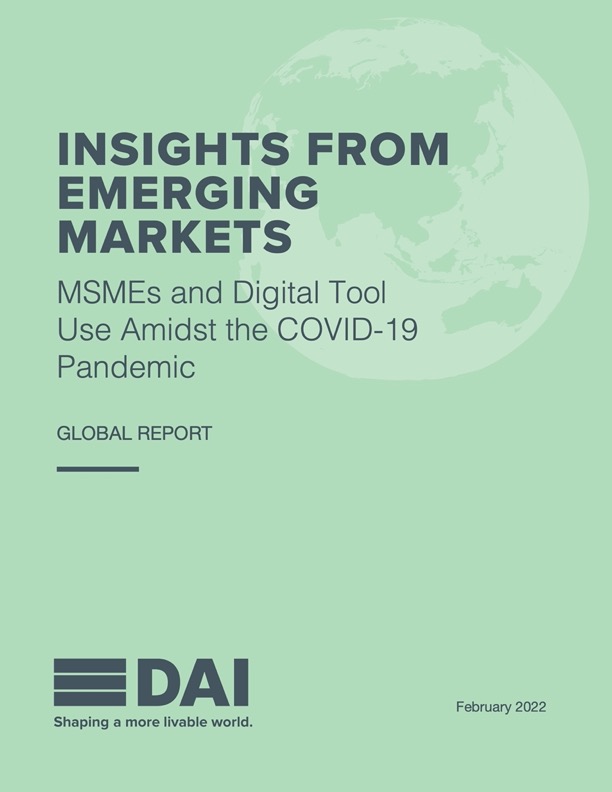
Global Report
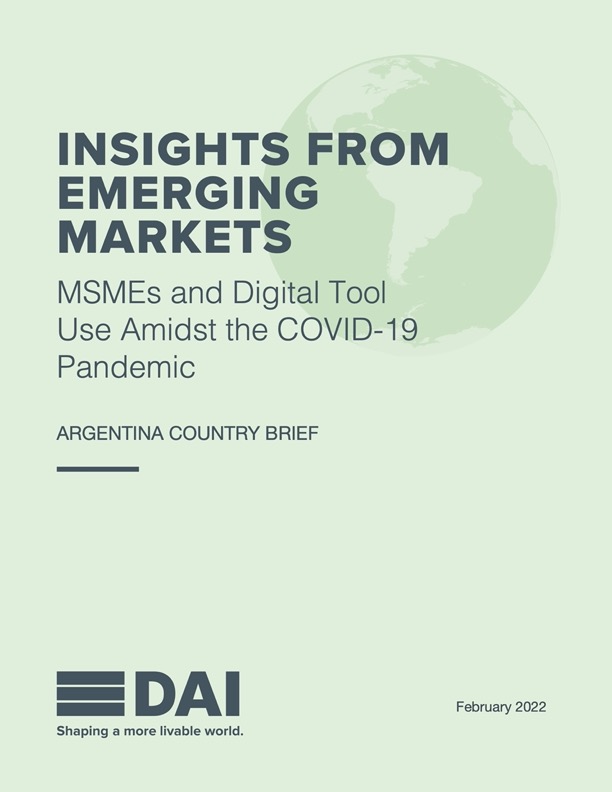
Argentina Country Brief
These research findings afford insight into key MSME segments:
- Women-owned MSMEs
- MSMEs in urban, suburban ,and rural areas
- Microenterprises, small enterprises, and medium-sized enterprises
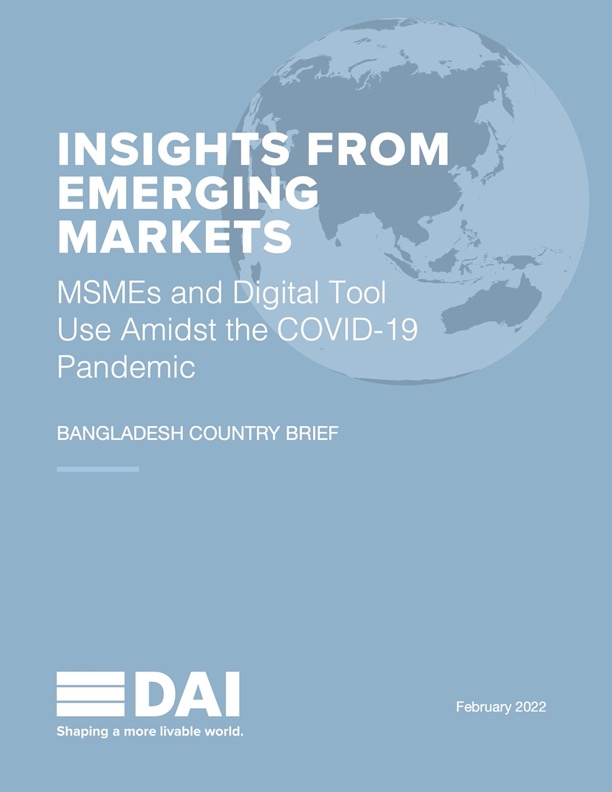
Bangladesh Country Brief
These research findings afford insight into key MSME segments:
- Women-owned MSMEs
- MSMEs in urban, suburban, and rural areas
- MSMEs working in specific business sectors
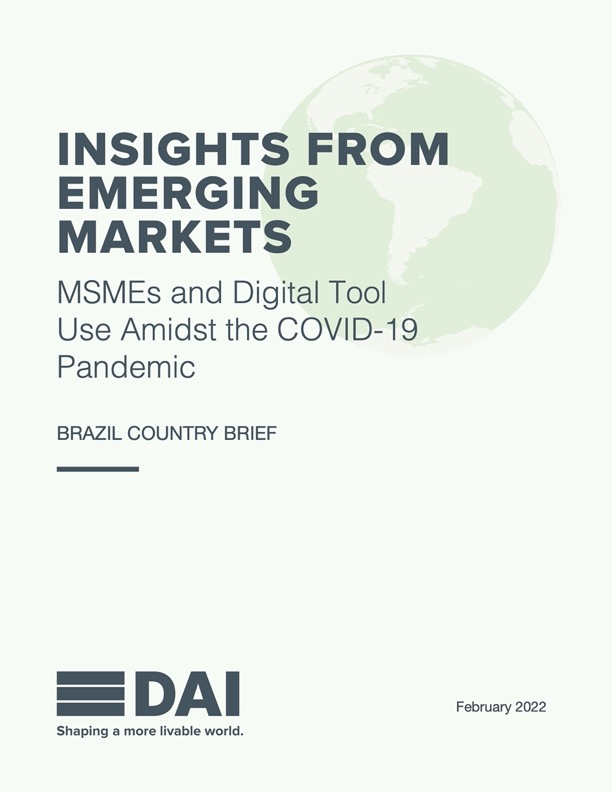
Brazil Country Brief
These research findings afford insight into key MSME segments:
- Women-owned MSMEs
- Microenterprises, small enterprises, and medium-sized enterprises
- MSMEs in urban, suburban, and rural areas
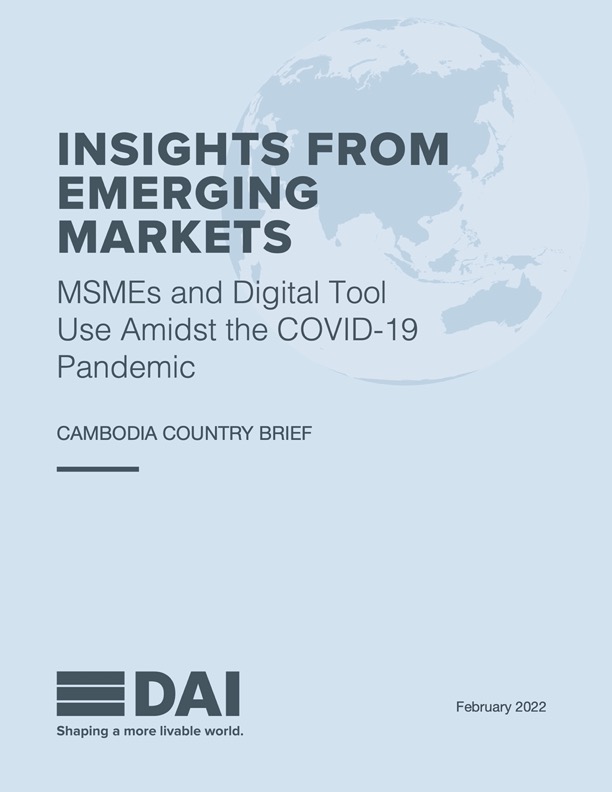
Cambodia Country Brief
These research findings afford insight into key MSME segments:
- Women-owned MSMEs
- MSMEs working in specific business sectors
- Microenterprises, small enterprises, and medium-sized enterprises
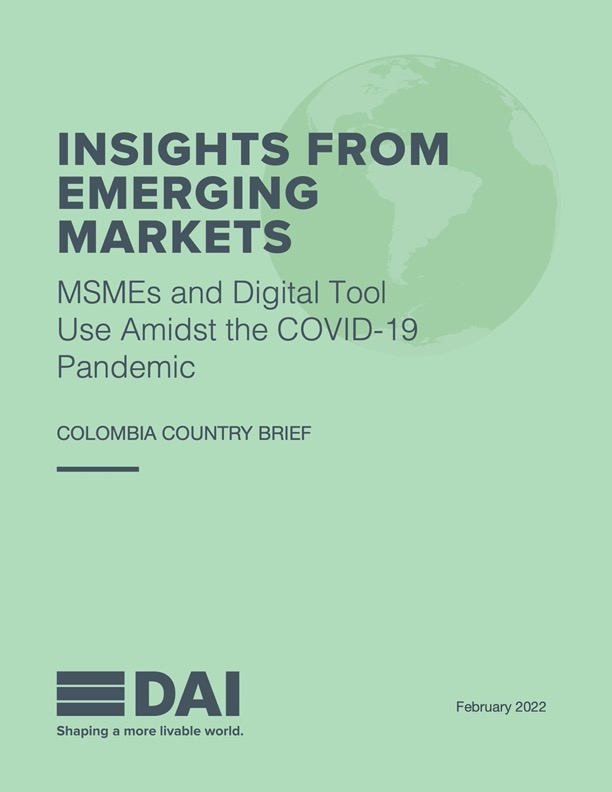
Colombia Country Brief
These research findings afford insight into key MSME segments:
- Women-owned MSMEs
- MSMEs in urban and rural areas
- MSMEs working in specific business sectors
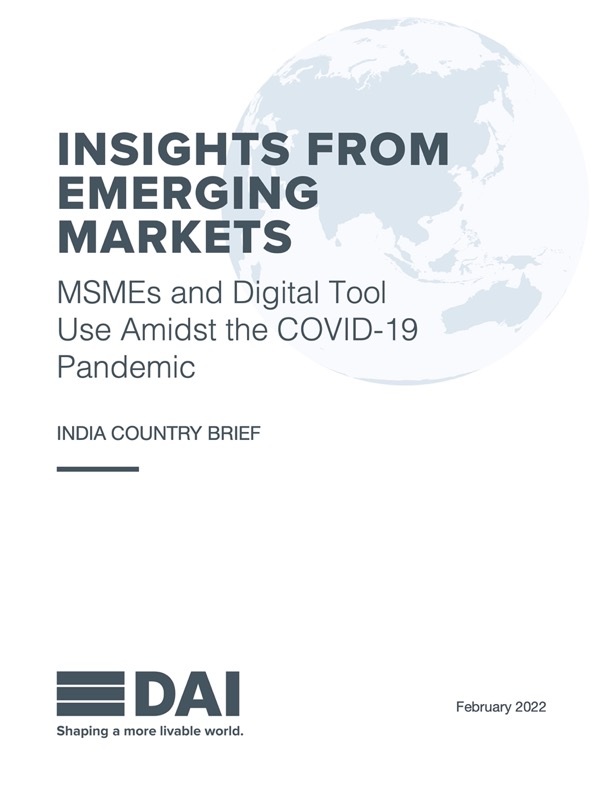
India Country Brief
These research findings afford insight into key MSME segments:
- Women-owned MSMEs
- Microenterprises, small enterprises, and medium-sized enterprises
- MSMEs working in specific business sectors
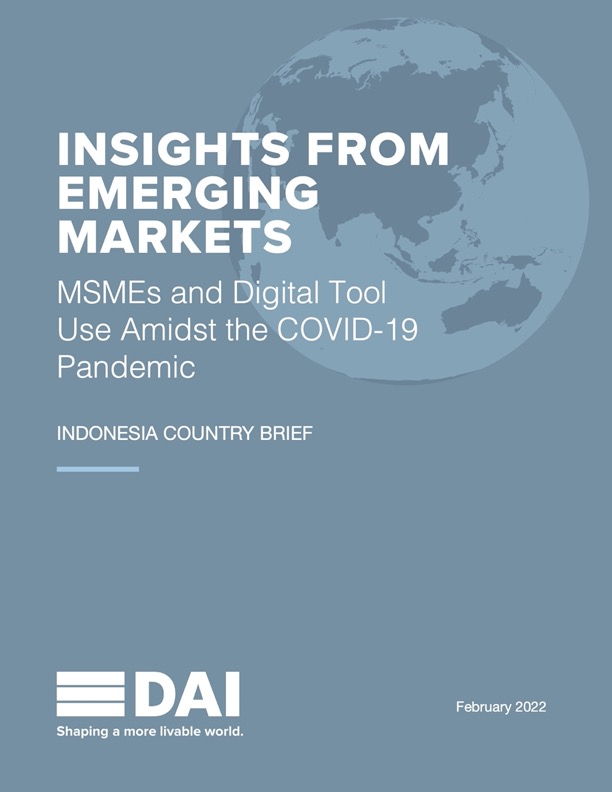
Indonesia Country Brief
These research findings afford insight into key MSME segments:
- Women-owned MSMEs
- MSMEs in urban, suburban, and rural areas
- MSMEs working in specific business sectors
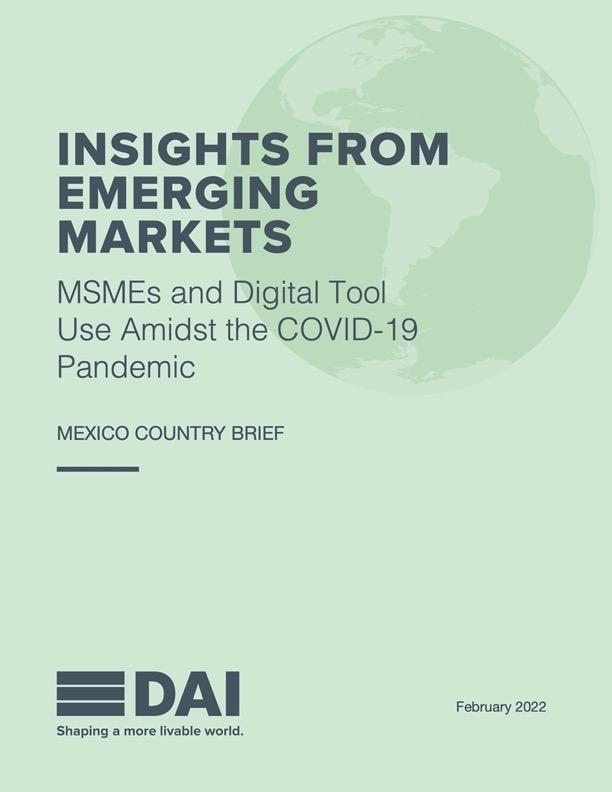
Mexico Country Brief
These research findings afford insight into key MSME segments:
- Women-owned MSMEs
- MSMEs working in specific business sectors
- Microenterprises, small enterprises, and medium-sized enterprises
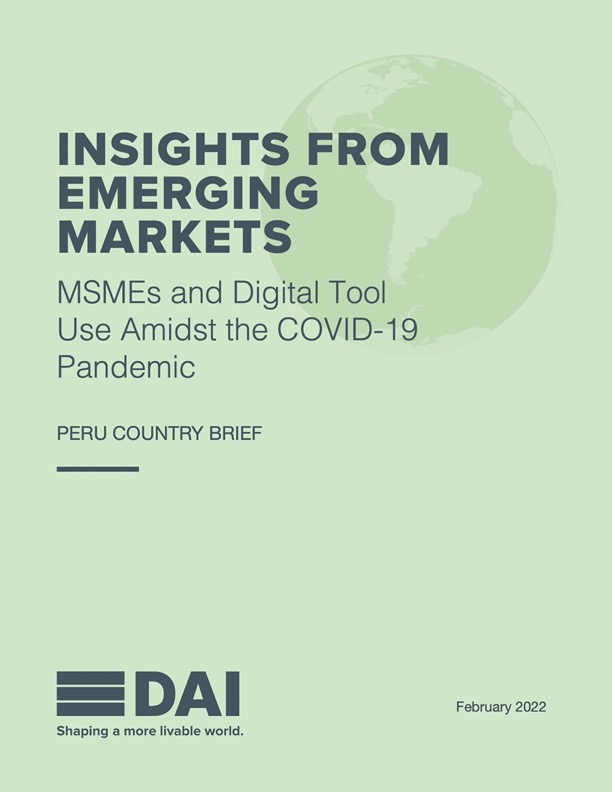
Peru Country Brief
These research findings afford insight into key MSME segments:
- Women-owned MSMEs
- MSMEs working in specific business sectors
- Microenterprises, small enterprises, and medium-sized enterprises
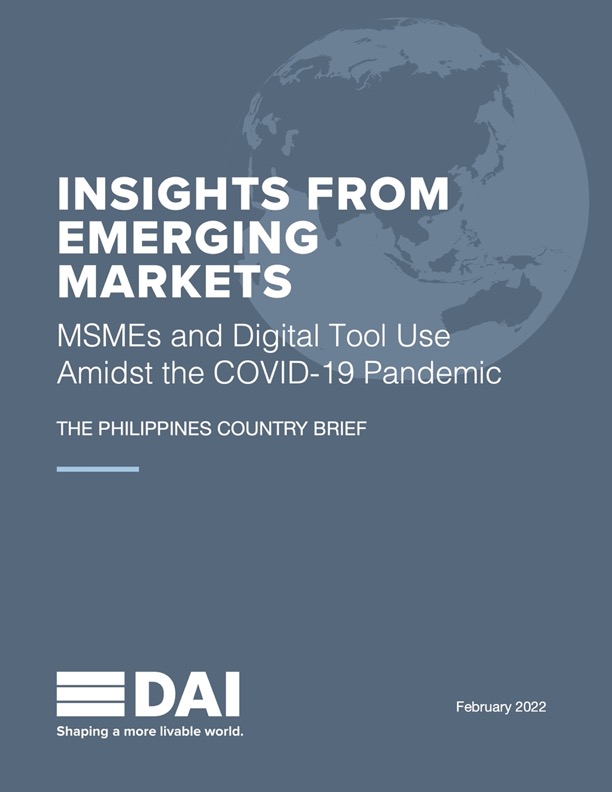
Philippines Country Brief
These research findings afford insight into key MSME segments:
- Women-owned MSMEs
- MSMEs in urban and rural areas
- MSMEs working in specific business sectors
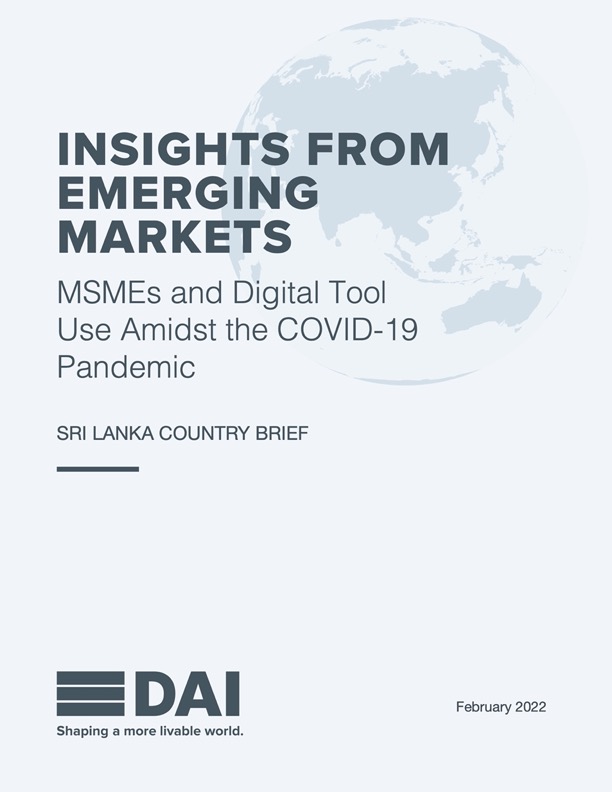
Sri Lanka Country Brief
These research findings afford insight into key MSME segments:
- Women-owned MSMEs
- MSMEs in urban and rural areas
- MSMEs working in specific business sectors
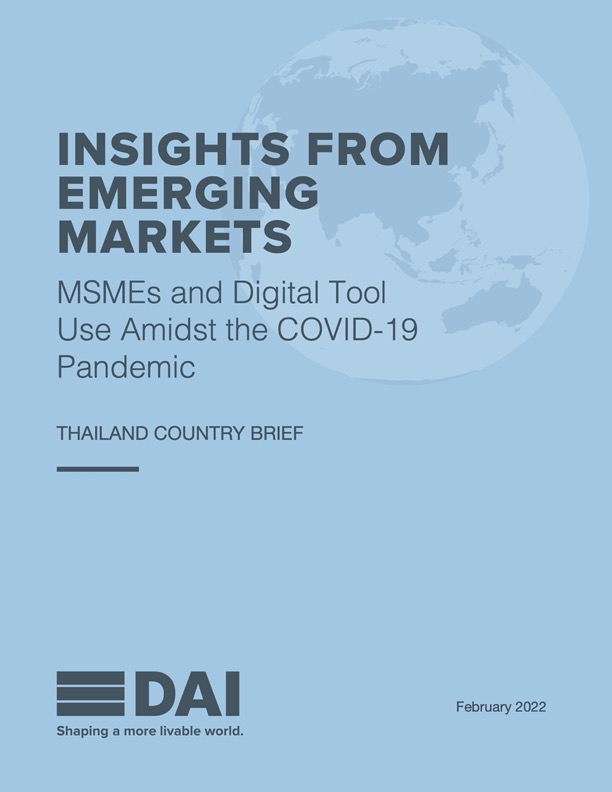
Thailand Country Brief
These research findings afford insight into key MSME segments:
- Women-owned MSMEs
- MSMEs in urban, suburban, and rural areas
- MSMEs working in specific business sectors
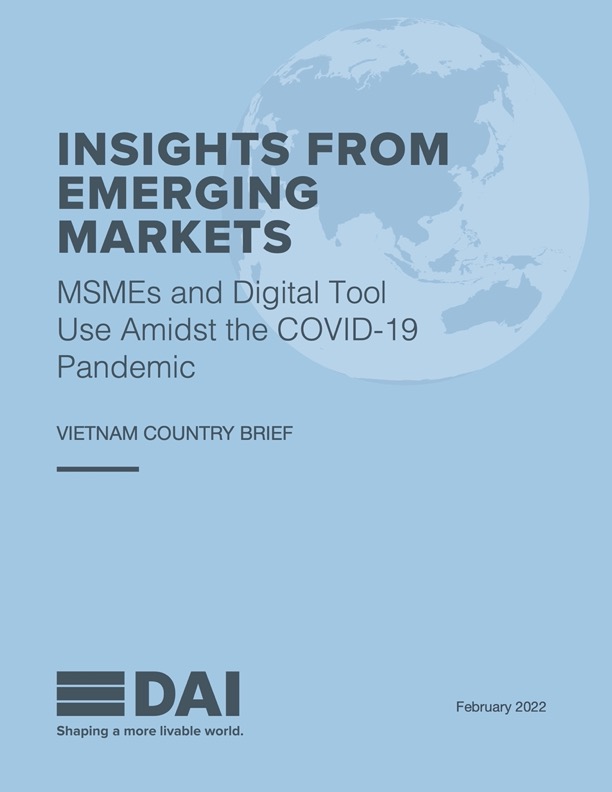
Vietnam Country Brief
These research findings afford insight into key MSME segments:
- Women-owned MSMEs
- MSMEs working in specific business sectors
- Microenterprises, small enterprises, and medium-sized enterprises
RELATED CONTENT:
Read the latest issue of Developing Alternatives
Developments is DAI’s newsletter. News and feature articles, opinion pieces, and interviews highlight DAI projects and offer insight into global development issues of the day.
Read More